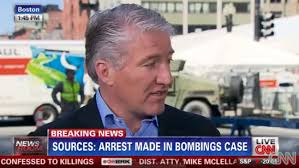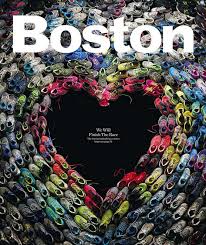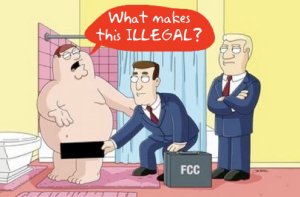THE RICH JOURNALIST:
This past Thursday, my class had the pleasure of meeting Michael Rosenblum – a very rich & nontraditional journalist. He was extremely funny! He poked jokes at every type of medium there is from print to television to even online. He even poked fun at social media sites like Facebook and Instagram, mentioning that there was NO future in the sites and that “they’re all F***ED” – that was the word of the day for him.
Before the end of class, he made sure to share his very strong opinion of what the future of journalism will be like. He stressed the fact that journalists do not have to depict what movies describe us as, which he explained is a poor individual who cannot even afford to pay rent. He informed my class on his opinion of where advertising was heading for the future, which in his opinion is nowhere. He has a strong belief that the main source of revenue that many media and websites rely on today will vanish in the near future. So in his eyes there will be no more CNN, no more local news and no more newspapers; with the exception of The New York Times, for now until it to dies out.
So why does he believe this? Because, according to him, these companies are running on an old model that makes it mandatory for content to be supported by advertisers in order for the business to be successful. If there are no advertisers, then there is no money to run the business, which is the major problem these companies are facing today.
When he began to talk about Amazon and Ebay, his passion for the way the companies’ revenue is gained was seen throughout the building and around campus. He loved the fact that the companies are making a large sum of money by just being a web host for transactions – another word he favored during his time in the class. One of his main suggestions to my class was to go on WordPress and just start blogging. He suggested that we make our own videos and post it online. He made this point because he considers my generation as the tech savvy generation. He said that we are the generation that needs to work for ourselves and not for the dying media companies that will no longer be able to employ us. Besides that, his other best suggestion was for my generation to sell ourselves and our work. He also expected us to figure out a way to connect content with transaction.
THE STUDENT JOURNALIST:
Here’s my take on his opinions from top to bottom.
First, although physical newspapers are in my opinion dying, “important papers” like The New York Times and The Wall Street Journal (I feel comfortable to vouch for these two, seeing that I am more familiar with the papers and its fan base) will never literally die. I believe that at some point, maybe when all the baby boomers die out, both papers will make the full transition to being online. So yeah, maybe the physical paper will die out but its legacy will still be alive through the internet.
In terms of his comments about social media sites, I can agree that at some point it too will die out but not for the same reasons he believes. As someone who was once on Bebo, Sconex, MySpace, and now Facebook, I personally have learned that it’s nothing but a trend. Soon, something bigger and better will come and slowly take over Facebook, then the trend of Facebook will be over. Right now, most people that I know who were on Facebook when it first came out are not on it so muc. They’re more on Twitter or Tumblr. See the trend? It’s only a matter of time before the latecomers of Facebook slowly come off and join another new trend.
On a side note: I think that Instagram has a long way to go before anyone gets tired of it, it could be because it’s still in the “new trend phase” or that the concept is kind of original or it could be that I am bias because it is my favorite social media site now.
Back to my points:
I personally think that the media just needs to do a 360 degree turn and think of the future and its consumers. Local news and community papers or now hyperlocal papers need to be catering to its consumers and discussing issues arising in the community. Easier said than done, but that’s why there are so many big executives in these companies, they can figure it out or hire Michael to do the thinking for them as he pointed out.
I don’t think that CNN and similar news organizations are going to be vanishing anytime soon, simply because it is the news. When a crisis is going on, these networks look to milk in the opportunity of viewers. My most recent experience with this was during the Boston Bombing. These news organizations literally informed me the same information over and over and over again until something new came in. But what did I do? I watched all the networks and listened to the same information over and over and over again until something new came in. Why? Because I didn’t want to miss anything and wanted to stay informed.
If there is anything I can say about TV, it is that it may eventually join newspapers and transition to becoming solely online, but that’s probably way past the death of the baby boomers. I’ve had professors tell me that radios are not useful anymore, but I don’t agree. I still listen to the radio, it may only be in my car, but I definitely still listen to it. That’s why I think that TV may have some more time in this world before the internet fully takes over.
Lastly, I’m going to have to disagree with his belief about the future of advertising and the fact that it will die soon. I think that it takes someone smart to redefine the meaning and nature of advertising. I think advertising is effective in some ways depending on the product. I blogged about this before, when Coca Cola saw that there was no benefit in advertising on social media. I just don’t see the sense of a big established company wasting its money to advertise, especially when it has regular individuals doing the advertising for it. When there is a birthday party or event going on with free drinks; Coke, Pepsi and Sprite will almost always be there because it’s some of the popular ones. These are the events where people will be forced to try new drinks they probably never tried. I can speak for myself, because I know that I am able to spend my money on something new if I tried it before or heard good reviews about it. The same goes with cars, an example he used in class. No one can afford to buy a new 2013 or even 2014 car right now, expect for a very small group. But when someone from that group wants or needs a car, the person goes straight to the dealership or its website to find a car or even opinion websites and car websites. Those sites will have a better chance of doing the advertising for the car companies before the companies itself can.
THE KICKER TO MY POINT…
My whole very long point is that newspapers, mainly the legacy ones, will probably never die. But that is only if it makes the transition to being a full service online paper quickly and find other revenue to support itself. I say that because it is proven that advertising online right now does not pay the bills and salaries; charging individuals a price to view content on the website is just a start on making some revenue.
Social media is and will forever be a trend, that’s just our society for you. TV news and 24-hour news will still be here for a long time, but it needs to be revamped.
Advertising also needs to be revamped. It needs to find a way to be more interactive and connective with people and less annoying and pointless. It also needs to find a way to connect with the online community.
Lastly, for the next generation and wave of journalists, if all fails, do your own thing. Find a passion in the news and go with it. If it is anything he said that I could agree with, it is to not to work under these big time news companies. I feel that sometimes, these companies get a little carried away on what the purpose of news is because at some point the wall between church and state in the news business is broken. That’s when it becomes all about the money. But, we the next generation and the next wave of journalists can change that. We know what is missing from the news and what we like and don’t like. We have so much creativity in our minds, especially when it’s a passion. We are young and some of us have little to no real responsibilities. Most of us have support from professors, families, friends and mentors.
Take me as an example, my future venture is to redefine video work while telling news stories, because I believe that in this day and age stories are better told with a little more bit of visuals and sound.
So what’s yours?





